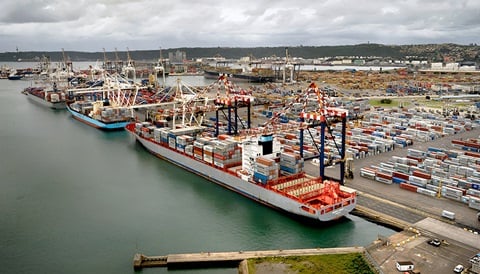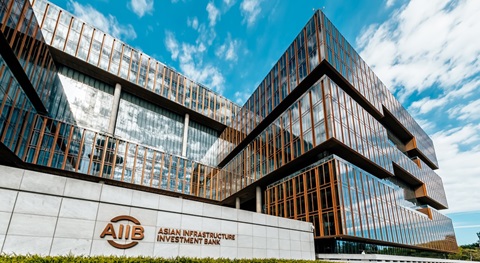Automobile giants are increasing their footprint in Africa
Global auto manufacturers opt mostly for assembly in Africa, but local manufacturing is starting to take off.
By Johan Burger

The Ghanaian Ministry for Trade and Industry announced at the end of September 2021 it had adopted over 30 standards to enable organizations in Ghana to assemble and later manufacture vehicles locally. In addition, the Ghanaian government has been pursuing an Industrial Transformation programme to position Ghana as the new Manufacturing Hub for Africa as part of its One District One Factory (1D1F) initiative.
Scarcely two weeks after this announcement, Ghana's Government stated it would soon commission four new vehicle assembling plants as part of its strategy to become a car-manufacturing hub in West Africa. As it is, Volkswagen and Toyota have already established car assembling plants in Ghana, which will be augmented by four more in the pipeline that will soon be commissioned. In August 2020, Volkswagen opened its first assembly plant in Ghana, where they will assemble up to 5,000 vehicles annually. Nissan is reportedly also preparing to launch an assembly plant.
Ghana is not the only country in Africa embracing the auto manufacturing sector. Morocco has established itself as the largest automotive manufacturing hub with 360110 cars in 2019, followed by South Africa with 348665 and Egypt with 18500. Morocco overtook South Africa as the largest automotive manufacturer in 2018.
According to the International Organization of Motor Vehicle Manufacturers (OICA), Africa only accounts for 1% of cars sold worldwide despite having 17% of the world's population, compared with China's 30%, Europe's 22%, and North America's 17%. In addition, statistics from McKinsey indicate that while Africa has on average 44 vehicles per 1,000 people, the global average is 180, with that of the USA at 800 per 1,000 people.
BMW, Daimler, and VW are among the biggest car companies on the continent, as they represent over 90% of all passenger cars produced and a 33% of the vehicles sold in South Africa in 2019. Toyota and Nissan also have a very significant footprint on the continent. Both have a large manufacturing capacity in South Africa. In addition, a Chinese electric vehicle manufacturer, BYD, plans to open a plant in Kenitra, Morocco, while Hyundai also wants to open a plant in Morocco after leaving Algeria.
According to a 2017 Deloitte report, Africa's passenger vehicle sales could reach up to 10 million units annually within the next 15 years. This vast number is a clear indication of the importance of the sector for Africa and why global manufacturers are interested in Africa. In addition, the continent's urbanisation rate and growing consumer class are increasing the continent's attraction for global manufacturers.
Morocco has benefitted from its proximity to the markets in Europe and the free trade agreements it has signed with Europe, the USA, Turkey, the UAE, and elsewhere. However, most sub-Saharan Africa countries do not have these advantages and primarily focus on their mostly small local markets.
Global manufacturers also have very small production plants in Kenya and Rwanda. In the latter, Volkswagen is testing e-mobility. In addition, Europe's manufacturers are planning to open plants in Ethiopia, Nigeria, and Ghana.
Some countries are also seeing the development of local auto brands. These include Kenya, Nigeria, South Africa, and Uganda. These companies, however, face challenges such as brand recognition, service infrastructure, small local markets, and significant upfront investments. As a rule of thumb, it is generally accepted that to have a thriving auto manufacturing sector requires a minimum per capita GDP of US$3,500. Very few countries in Africa meet this requirement.
According to the Deloitte report, Africa needs to deal with several issues to develop a thriving automotive market. It must overcome the over-reliance on second-hand vehicle imports, address insufficient vehicle financing options, build an efficient local supplier base, design and implement an automotive policy to unlock the auto market, and consolidate a highly fragmented aftersales market.
These challenges, however, have not limited the enthusiasm of local stakeholders. Nigeria's Innoson Motors was the first made-in-Africa auto brand and is now one of the largest car manufacturers on the continent, having sold 10,000 vehicles since its inception in 1987. Its customers include the Nigerian government. Founded in Tunisia in 2006, Wallyscar manufactures a range of small 4x4s sold predominantly in Africa, Europe, and the Middle East. The typical price is in the vicinity of US$17,500. Ghana's Katanka Cars was established in 1994 to manufacture a range of saloons, four-wheel drives, SUVs, and pickups. In December 2019, the company started manufacturing an electric vehicle, the Kantanka Odeneho. In Kenya, Mobius Motors was founded in 2011, with the Mobius II and the next-generation launched in 2015 and 2019, respectively. The SUV costs approximately US$10,000.
Africa's first electric vehicle produced, the Kiira EV, was built by students at the Makerere University in Uganda in 2011 with government support. They subsequently found the Kiira Motors Corporation (KMC), which has designed and built three concept vehicles, i.e., the Kiira EV, the Kiira EV Smach, the first electric hybrid vehicle designed and built in Africa, and the Kayoola Solar Bus.
The attempts by Africa's governments to attract global auto manufacturers are driven by the fact that the automotive assembling and component manufacturing industry drives economic growth, employment, foreign investment, innovation, and skills development. The focus on "made locally" will also ensure a local supply chain and locally manufactured parts for the auto industry. Countries like Ghana, Kenya, and Rwanda, for example, also want to limit the import of used and obsolete cars.
Additional readings:
Anon. 2021. Ghana to assemble and manufacture vehicles locally – Alan Kyerematen reaffirms as he inaugurates Ghana Standards Authority Board. MyJoyOnline.com. 30 September 2021. Available at https://www.myjoyonline.com/ghana-to-assemble-and-manufacture-vehicles-locally-alan-kyerematen-reaffirms-as-he-inaugurates-ghana-standards-authority-board/?param=. Accessed 22 October 2021.
Davies, M. and Schiller, T. 2018. Deloitte Africa Automotive Insights. Navigating the African Automotive Sector: Ethiopia, Kenya and Nigeria. 28 May 2018. Available at https://www2.deloitte.com/content/dam/Deloitte/za/Documents/manufacturing/za_Africa-Auto-2016-Report-28-May-2018.pdf. Accessed 22 October 2021.
Harper, J. 2021. Africa begins to emerge as car industry hub. DW: Made for Minds. 15 October 2021. Available at https://www.dw.com/en/africa-begins-to-emerge-as-car-industry-hub/a-59500532?utm_source=Africa.com&utm_campaign=5827d0e135-EMAIL_CAMPAIGN_2019_05_27_09_40_COPY_01&utm_medium=email&utm_term=0_12683c81a6-5827d0e135-29147709. Accessed 22 October 2021.
Yeboah, C.N. 2021. Government to commission 4 new vehicle assembling plants soon. MyJoyOnline. 19 October 2021. Available at https://www.myjoyonline.com/government-to-commission-4-new-vehicle-assembling-plants-soon/?param=. Accessed 22 October 2021.







